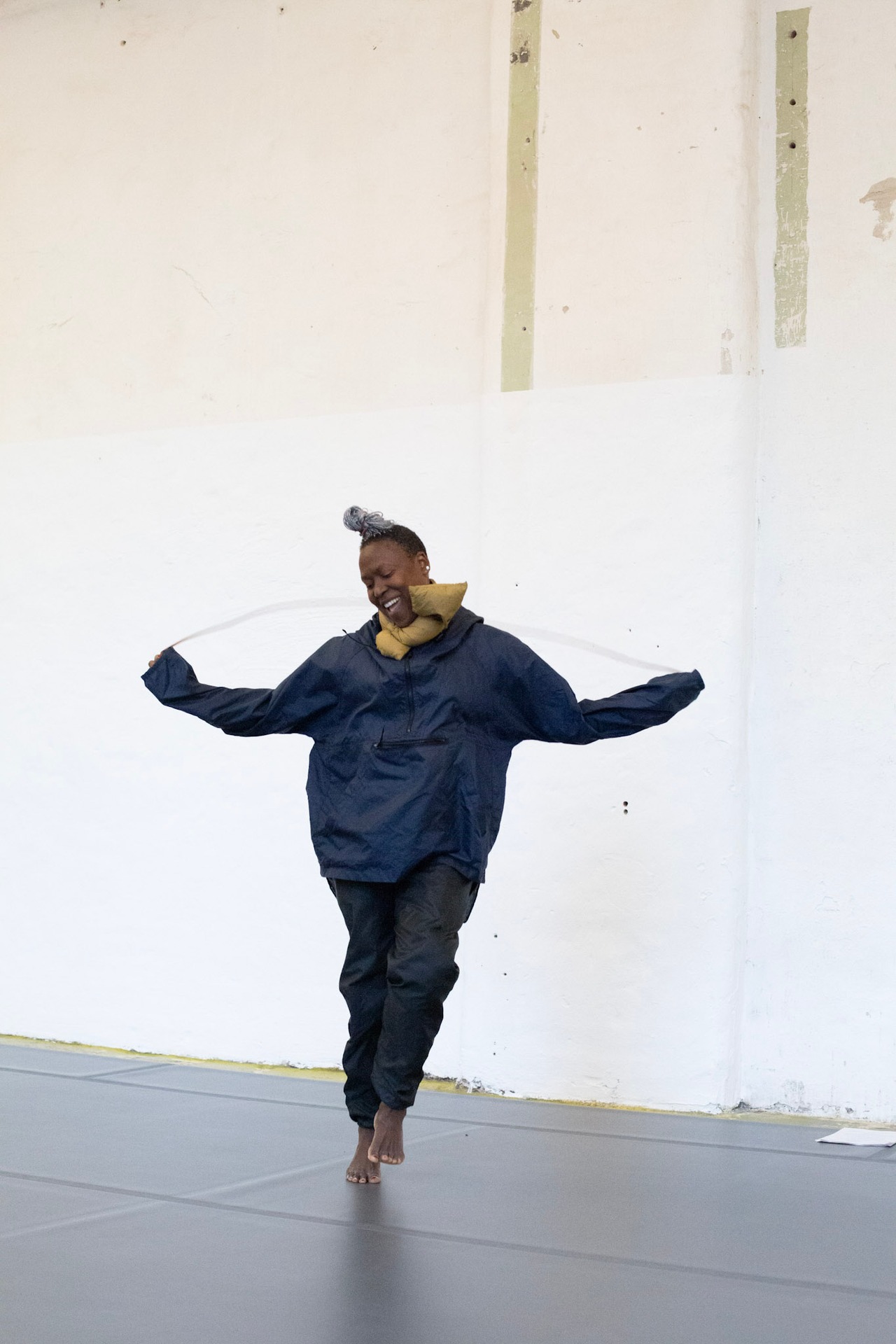Born 1965 in Mutare, Zimbabwe; lives and works between New York City, United States of America, Harare, Zimbabwe and Berlin, Germany.
nora chipaumire is an artist who uses her body as a starting point to explore theoretical, historical, and personal material. Her practice is rooted in decolonialism and aims to “express a poetic insolence that rebels against ignorance, honors ownership of the body and imagination, and conveys freedom and strength.”
For years chipaumire developed an approach she calls nhaka, literally “heritage” in Shona, her first language. Nhaka can be understood as an animist physical manifesto: chipaumire hopes it will be used by artists to forge a practice of physical and mental rigor that owes nothing to European court dances, such as ballet. With nhaka, chipaumire is building a language of movement that looks toward questions of justice and aesthetic justness. She approaches dance as an “animist technology”—a means of uncovering questions and answers lodged within the physical body.
In 2021, while in residence at Callie’s, chipaumire worked on Nehanda, an opera based on a colonial court case. Her research encompassed Germany’s colonial history with a particular focus on the Berlin Conference of 1884-1885 when European nations convened in the city to strategize colonization and set out guidelines for making claims to Africa. It was at this time that Germany emerged as an imperial force and the height of colonial conquest took place.
Nehanda is a spirit who inhabits only women and is venerated by the Shona people, native to Zimbabwe and central Mozambique. In the late 19th century, Nehanda’s medium was Charwe Nyakasikana, a revolutionary leader who orchestrated the 1890’s uprisings against British colonists. Upon capture, she was brutally executed. Says chipaumire: “The work accepts that the decolonial project begins only after the failure of neo-colonial independent states to govern themselves and throw off the yoke of capitalism. A return or renewal of African animist practices could be essential in the journey towards total emancipation of the Black African body.”
Chipaumire returned to Callie’s in 2023 to choreograph and develop DAMBUDZO, a live performance and sound installation inspired by Dambudzo Marechera’s novel The House of Hunger. The work included several collaborators creating a participatory space for decolonization through the resonance of the Shona word “Dambudzo” meaning “trouble. Premiering at MUMOK in Vienna and later presented at Paris’s Festival d’Automne in 2024, Dambudzo offered a space for audiences to imagine new worlds of freedom.
In the winter of 2024, chipaumire returned to Callie’s to work on two projects: The second chapter of DAMBUDZO, in the form of a solo performance, and an “anti-retrospective,” reflecting on a life lived in the arts, rejecting traditional retrospective formats.
nora chipaumire was born in 1965 in what was then known as Umtali, Rhodesia, now Mutare, Zimbabwe. She attended group B schooling, a colonial education for Black native Africans. Upon independence, she studied law at the University of Zimbabwe and after self-directed exile, studied dance at Mills College in Oakland, CA.



